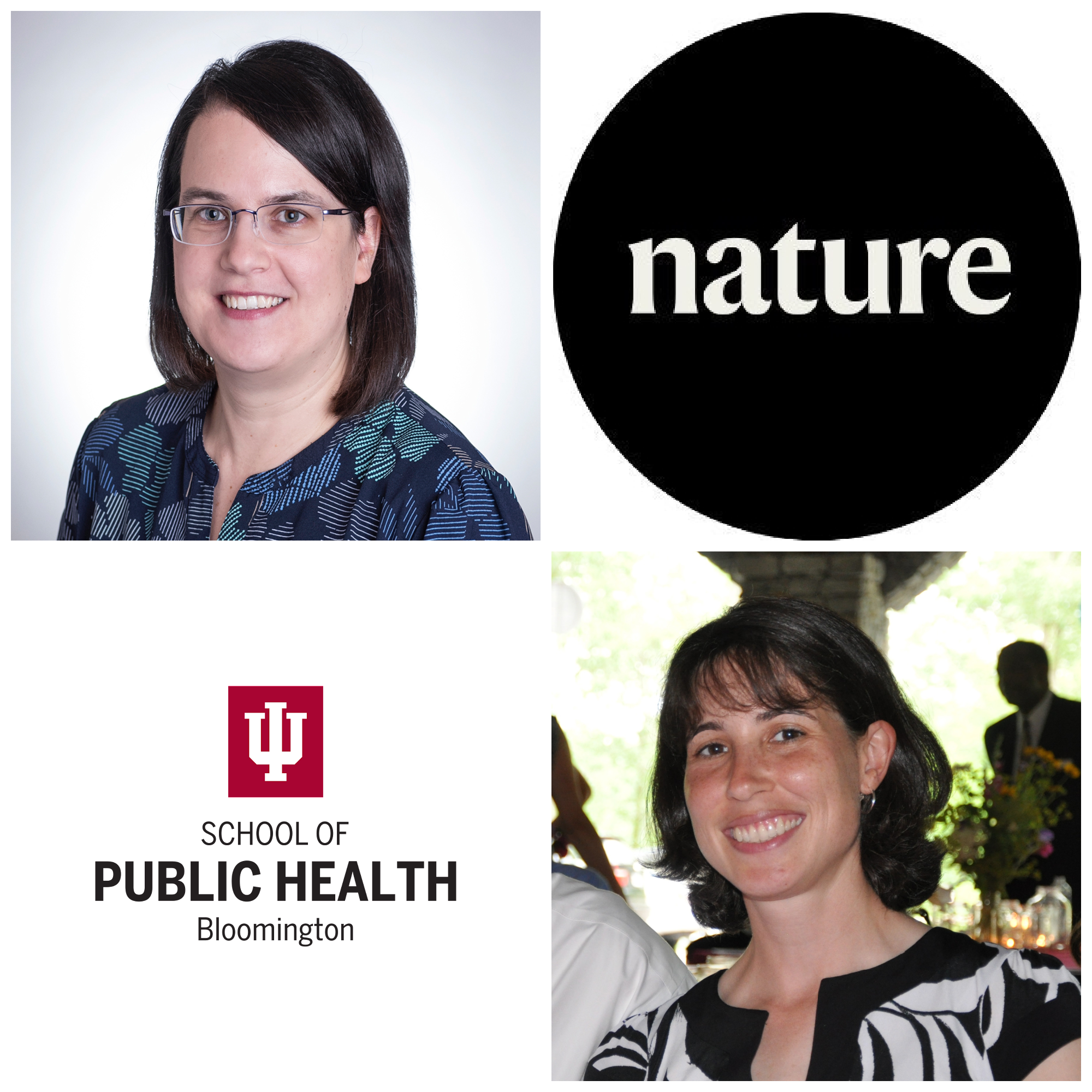Two faculty members in the IU School of Public Health-Bloomington (SPH-B) Department of Epidemiology and Biostatistics contributed to a major article, "Millions of jobs in food production are disappearing—a change in mindset would help to keep them," published in the prestigious journal Nature.
Stephanie Dickinson, academic specialist and executive director of the Biostatistics Consulting Center, co-authored this article with Research Associate and Biostatistician Beate Henschel, in collaboration with Distinguished Professor of Anthropology Eduardo S. Brondizio, Ph.D. of IU the Sustainable Food Systems Science Project (SFSS) and members of the IU Ostrom Workshop Associate Research Scientist Stacey Giroux and Research Scientists Julia C.D. Valliant and Jordan Blekking. According to employment data from the International Labour Organization, 200 million jobs have been lost in food production worldwide over the past 30 years. There is also an indication, according to Dickinson and Henschel’s contributing research, that this unemployment trend is not slowing down—120 million jobs are expected to disappear 2030. Consequences of this include smaller communities experiencing “an exodus” of young people, and thus a decline in support for local economies and community/grassroot resources. And as industrial scale agricultural systems grow, so does their environmental impact, according to the article.
"Our part was doing the data analysis to measure the job loss and predict job loss by 2030, particularly in low-and middle-income countries," shares Dickinson. "Our teammates made the conclusions about the negative consequences this may have on economies and environment."

The Biostatistics Consulting Center has been working in tandem with SFSS as well as Ostrom for "many years to provide the statistical methods and data analysis 'how to' to facilitate their research," according to Dickinson. It came as no surprise when Giroux reached out to Dickinson and Henschel in February 2020 to bring the expertise of IUSPH-B to the study.
"My career goal is to do good work with good people, and this couldn’t be a better example of that," says Dickinson. "I am very proud of being published in Nature, which is a huge honor and testimony to the hard work of the team."

Henschel echoes Dickinson’s sentiments, sharing that she enjoyed being able to call upon her experience as a Labor Market Researcher in Germany to contribute important data to this research project.
Alan Reed, IU alum and executive director of Chicagoland Food & Beverage Network and the nonprofit organization Bigger Table, shares his professional perspective on the Nature article, stating that in 1920 U.S. farmers accounted for roughly 30 percent of the U.S. population—whereas by 2021, farm employment was just over one percent of total U.S. employment.

"As we look at a more sustainable future globally, we will see consolidation of farms and reduction in farm employment to maximize efficiency," he says. "This evolution should be seen as an opportunity for countries to build and bolster non-farm economies, and as a positive step forward for feeding the world more sustainably…but the transition certainly won’t be easy."

"Food is about both joy and sustenance, family and nurturance. An essential part of that sustenance and nurturance is a contribution to the economy and a source of living wages from which people can take pride and security," says IUSPH-B Dean David B. Allison. "Promoting good food infrastructure and the workforce to support it has a double benefit. These benefits accrue in the health of the public and we are lucky in our school to have good people like Ms. Dickinson and Ms. Henschel working on such important topics. My compliments and thanks to them."
Learn more about SPH-B faculty’s local and global impact at go.iu.edu/48bx.


